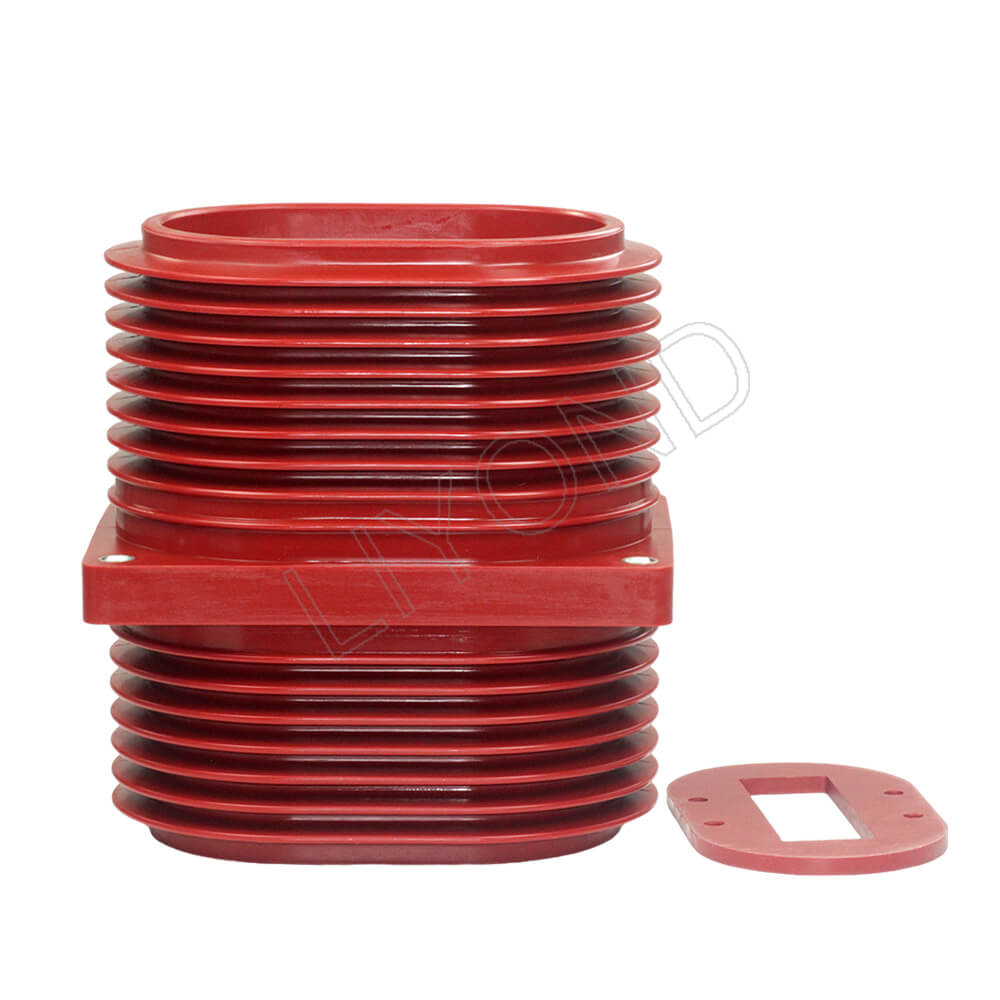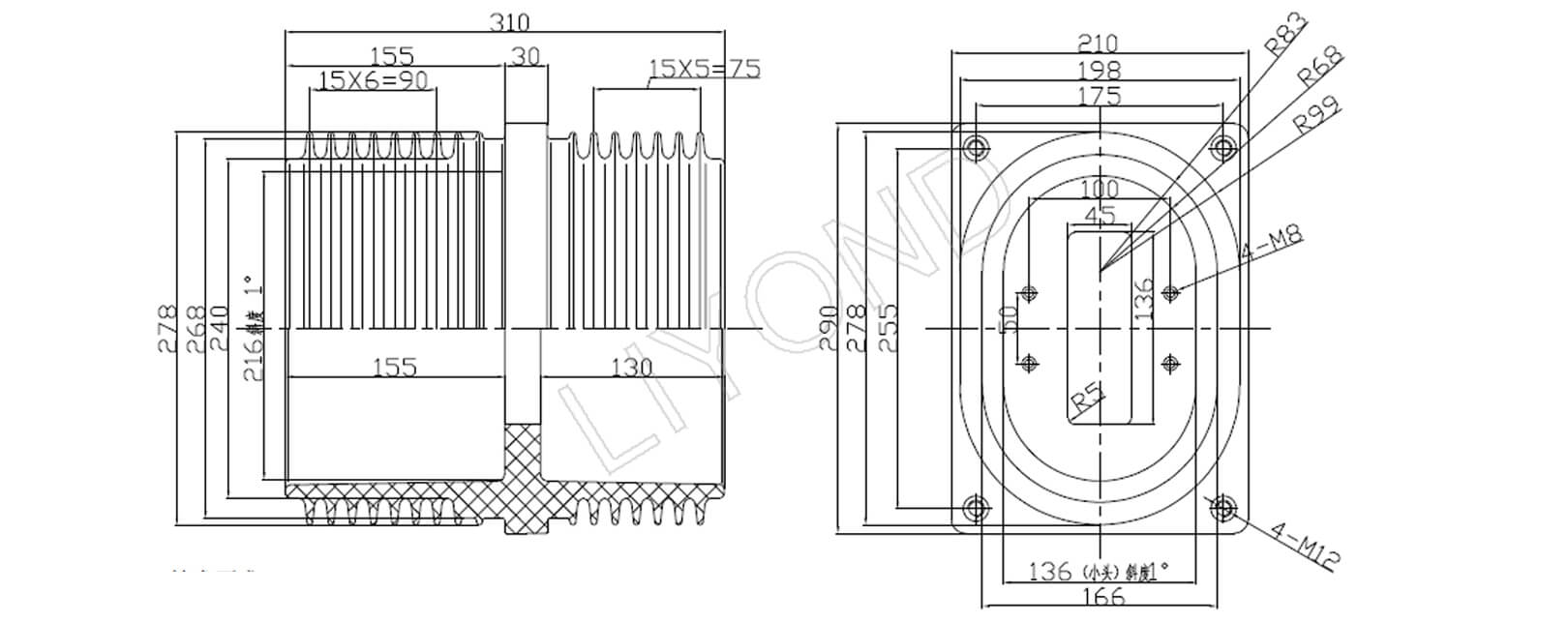

Indoor high-voltage through wall bushing is formed by epoxy resin with APG pressure gelating technies. It is mainly used in complete sets of equipment with rated voltages of 12KV, 24KV, 40.5KV and used for insulation isolation and excessive connection. The bushing is resistant to dirt and moisture and requires no special maintenance. It is only necessary to clean the surface regularly. The busbar passes through the hole during installation.
Features and Advantages
1. High insulation performance:
Adopt high-quality epoxy resin material, with excellent electrical insulation performance, can effectively prevent electrical breakdown and creepage.
2. High mechanical strength:
Epoxy resin material has good mechanical strength, can withstand large mechanical stress, and is suitable for various harsh environments.
3. Strong corrosion resistance:
Epoxy resin has strong corrosion resistance, can resist moisture, chemicals and other corrosive media, and prolong service life.
4. Excellent heat resistance:
It can maintain stable performance in high temperature environment to ensure the safe operation of equipment.
5. Light and easy to install:
Epoxy resin material is light, and the wall bushing structure is reasonably designed, which is easy to transport and install.
Application scenarios
1. High-voltage switchgear: used to safely introduce or lead high-voltage cables into or out of the switchgear to ensure the safe and reliable operation of electrical equipment.
2. Transformer: used for the lead-out wire of the transformer to ensure the safe connection between the transformer and the external power grid.
Power substation: used for the connection between high-voltage equipment in the substation, providing reliable insulation and 3. Mechanical support.
Industrial electrical equipment: used for the electrical connection of various industrial high-voltage equipment to ensure the safe operation of the equipment.
Working conditions
1. Altitude: ≤1000m;
2.Ambient temperature at -30℃ to +40℃, the daily average temperature should not more than 30℃.
3.The daily average of relative humidity is less than 95%, the average monthly is less than 90%;
4.Working environment should be without steam, gas, chemical corrosive deposition, salt fog, dust, dirt and other dangerous explosive media, which will severely impact on insulation and conductivity of products ;
5.Working environment should not be regular vibration or serious bumps
